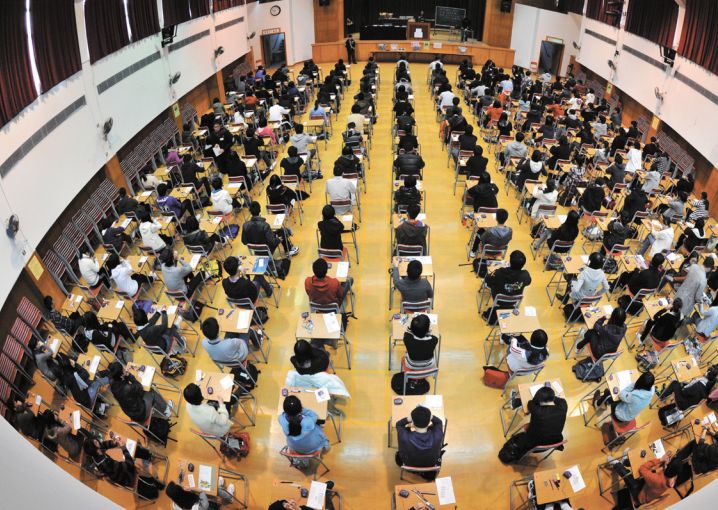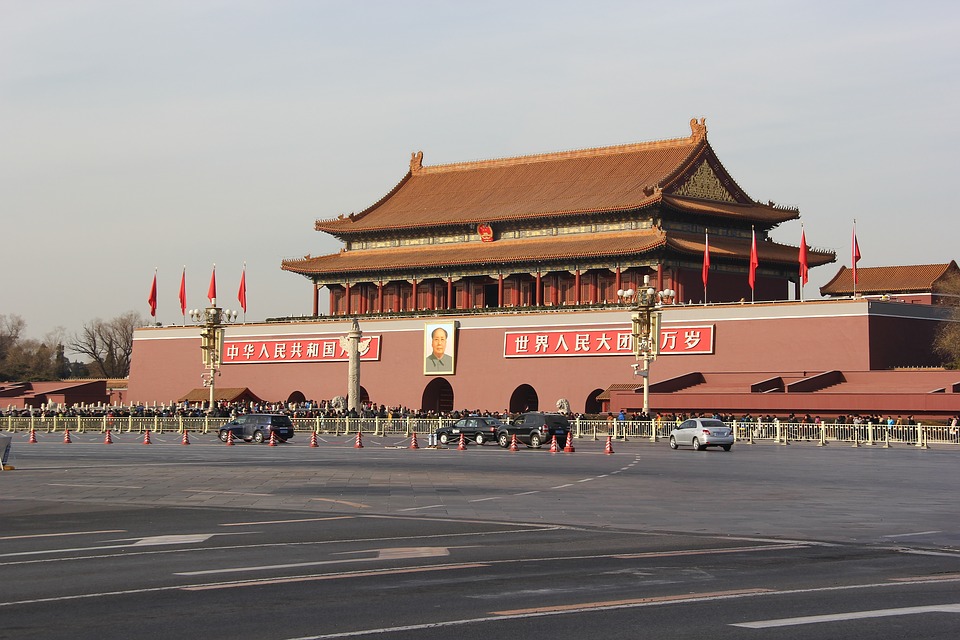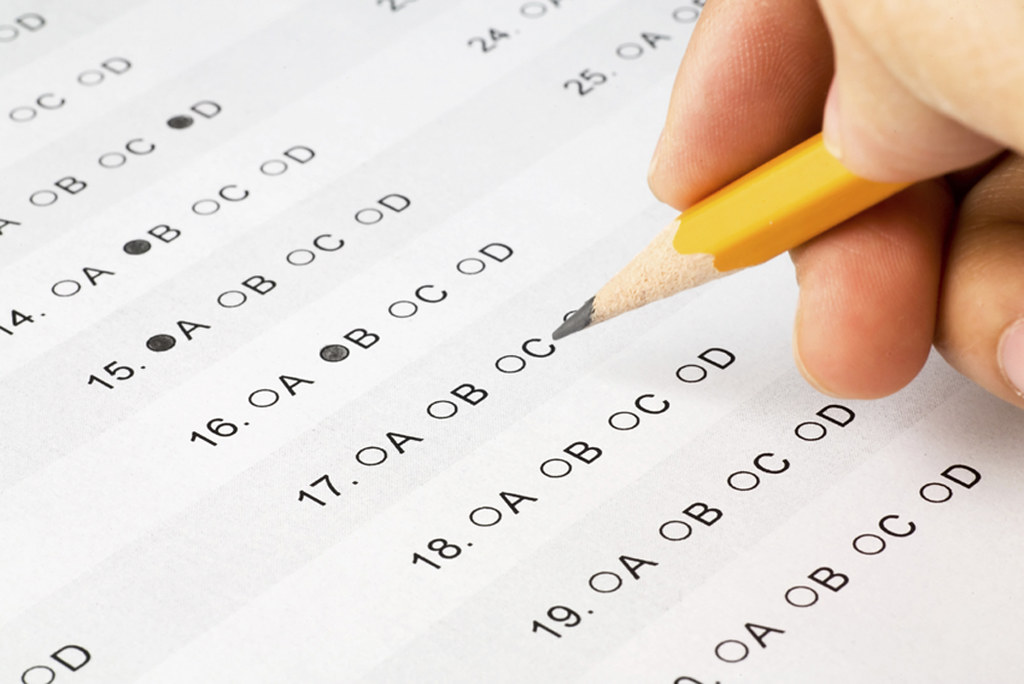Testing – or examinations – is probably the least popular part of education for everyone concerned. For students, a test is at best boring, at worst nerve-wracking.
Teachers may find some intellectual stimulus and human companionship in the classroom, but a pile of marking is just work. University teachers faced with a class of 300 people find their enthusiasm for continuous assessment wilting. One big exam solves the problem. But grading 300 papers is not fun.

In schools, the classes are smaller but the obligation to set a stream of tasks is inescapable. There is also the matter of exams set to test not the students but the school, by indignant representatives of the taxpayer who want some evidence of value for money.
One accepts, reluctantly, that some of this testing is necessary. If we don’t ask students to regurgitate what we have fed them we don’t know whether they have swallowed it or not.
There are also outsiders to consider. Employers expect us to grade their chicks for them. They do not make a great deal of use of the resultant information but it provides a rough means of pruning a list of applicants.
Other universities will be impressed if you get a First, employers who can afford to be picky will insist on an Upper Second, and the rest usually just stipulate a degree. This complacent attitude does not stop them complaining that the people recruited lack some vital quality. Traditionally, in Hong Kong, the complaint is about English.
The problem with assessment is that it is difficult to measure the things most of us consider important. Has the student been led to cherish and identify the good, the true and the beautiful? Never mind about work for a moment, is he or she equipped for happiness?
It is a curious paradox, as an American educator put it, that in examinations, cooperation is condemned as cheating, while at work the ability to fit into a team is the first essential quality.

So there are limits. This brings us to a gratuitous international orgy of testing organised by the Organisation for Economic Cooperation and Development and called PISA – the Programme for International Student Assessment.
This now involves 79 countries and is repeated every three years. Each country is required to provide 5,000 randomly selected 15-year-olds for the purpose. In small countries with less than 5,000 students in the relevant age group all the students are tested.
For each student, the written test takes two hours. Over the years there have been additional bits added and removed. The latest test included a questionnaire on school life which elicited the stunning snippet that globally nearly a quarter of school students had been bullied at least a few times a month!
But the hardcore of PISA, which is included every time, tests three subjects: reading, mathematics and science. This may owe something to the OECD’s terms of reference being towards development rather than education. The background assumptions are very utilitarian. Commenting on the latest high scorers, “The quality of their schools today will feed into the strength of their economies tomorrow,” OECD Secretary-General Angel Gurria said.
This seems to ignore rather a lot. No languages, no literature, no history, no geography, no physical exercise, no economics, no art, no music, no politics …ah. There is a potential problem here. The 79 countries involved have a variety of ideas about the purposes of education, from those who seek the happiness and self-realisation of the pupil to those whose highest priority is a proper appreciation in the younger generation of the merits and entitlements of an unelected government.

So PISA represents a sort of lowest common denominator. Everyone can agree that 15-year-olds should be able to read, count, and have some knowledge of science. Other matters are more contentious.
This is an important limitation, because the publication of PISA results – naturally in the form of a newsworthy “league table” – is usually followed by anguished soul-searching in countries which did not do well, and a certain amount of smug condescension from whose who did.
It also provokes a small avalanche of junk journalism, like this piece in Fortune, not perhaps a place where profound thought on educational matters is expected. Still, “China’s kids are now officially the smartest in the world” leaves a lot to be desired.
In the first place “smartness” is generally regarded as a synonym for intelligence, and intelligence is usually considered an attribute you are born with. PISA enthusiasts claim that it allows comparison of national education systems as systems. It does not rank ethnicities.
In the second there are recurring complaints of a rather arcane mathematical nature about the PISA procedure. The tests are not the same in all countries because of differences in language and culture. The results are then subjected to a rather elaborate procedure which is supposed to make them all comparable. The effectiveness of this is disputed.

The third problem is that there are some serious question marks over China’s results in particular. Unlike other countries China is allowed to pick where the 5,000 students are to be found. This leads to suspicion that the selection is not random.
In fact, the PISA people now say that underdeveloped countries are allowed to pick a few provinces instead of rolling out their masterpiece nationwide. China’s choice last time out was Shanghai, Beijing, Jiangsu and Zhejiang – in other words two big rich cities stuffed with universities and two prosperous coastal provinces, one of which claims to be “famous for education”.
There is also the matter of the hukou, or residence permit. Children in big cities whose parents migrated from the countryside and do not have this precious document are excluded from the official school system altogether.
Then there is a statistical oddity. People who keep track of these things have noticed that the PISA measurements are quite stable. As they should be – if national achievements over the system as a whole varied wildly from survey to survey you would suspect that a lot of chance was involved.
On average, then, scores change by about ten points. Occasional outliers – North Macedonia, which is still erecting an education system from scratch is the outstanding one, achieve improvements between 30 and 40 points. China’s leap to the top of the league tables was fuelled by increases of 60 to 70 points. This is the sort of anomaly which attracts the attention of people looking out for dishonesty.

Over the years we have been treated to a number of entertaining stories about the ingenious ways Chinese students cheat in exams. International testing organisations like the IELTS people now go to extraordinary lengths to make sure that the person in the examination room is actually the person whose name will go on the certificate.
It does appear that this national pastime is now being perpetrated at a national level.
It also appears that Chinese parents do not share PISA’s high opinion of the local schools. Parents who can afford it are reported to be very keen on international schools where pupils are subjected to such decadent educational innovations as curiosity and fun.
Before we leave you are no doubt wondering how Hong Kong did in this. We were fourth in the table behind the four provinces, Singapore and Macau.
A sensible comment on the subject from Ong Ye Kung, the Education Minister of Singapore, former occupants of the top spot: “Doing well in international rankings is not our end goal. But such benchmarking is useful to gauge where we stand internationally, and to reflect on where we can improve, such as making education more holistic, inculcating greater joy for learning, and creating an environment where failure is more accepted,” Ong said.
Doesn’t sound very Singaporean but I like the joy of learning. You can’t measure it, but then as Nassim Taleb has written the central requirement of education in the modern world is to teach us to make decisions with partial information.
There must be a suspicion that the concentration of Asian tigers at the top of the PISA league tables are paying a price, or their students are. Looking at Hong Kong’s very creditable record in this enterprise I am reminded of the young applicant to university who started his personal statement with “I am a typical Hong Kong stuffed duck.”
